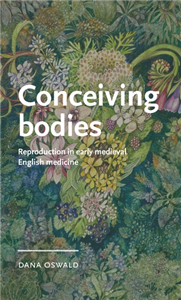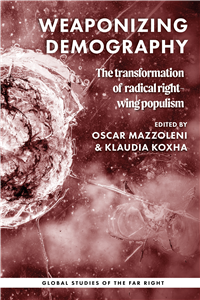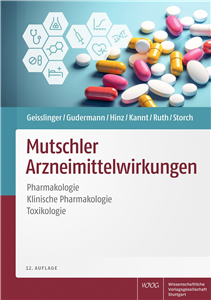Pharmacology – clinical pharmacology – toxicology
For over 50 years, the ‘Mutschler’ has served students and
professionals as a well-founded standard in pharmacology,
clinical pharmacology and toxicology. As customary, the 12th
edition is clear, practical and evidence-based – featuring new
active substances, biologics, drug classes and current guide-
lines. The indication-based organisation, concise chapter
structure and over 1,400 structural formulas furthermore
enable a deep understanding of mechanisms of action at the
cellular and molecular levels.
The basics of anatomy, physiology, pathophysiology and drug
effects are clearly explained within the relevant chapters. The
critical evaluation of each substance’s therapeutic benefit
and side-effect profile supports a well-informed and differen-
tiated approach to the use of medicine.
Didactically well-conceived and supported by numerous
illustrations and tables, this work offers a reliable foundation
for clinical practice, professional training and study – with
comprehensive coverage of the examination material for the
medical and pharmaceutical state examinations.
The ‘Mutschler’ is for anyone who not only uses medicines,
but also seeks to understand them.
Target group: Students of medicine, pharmacy, dentistry,
biology, biochemistry, chemistry, molecular medicine,
medical computing and psychology as well as physicians,
particularly in general practice and internal medicine,
pharmacists, dentists, biologists, biochemists and chemists


























